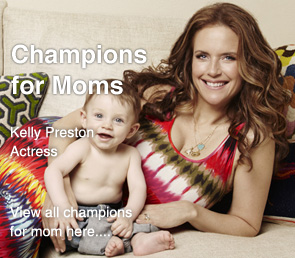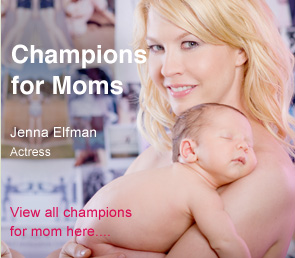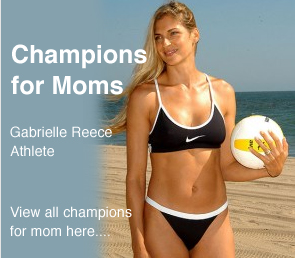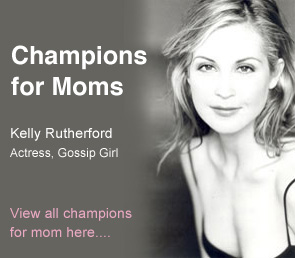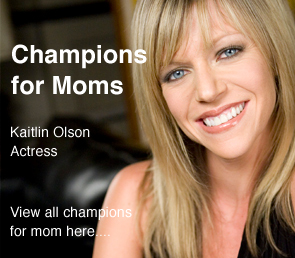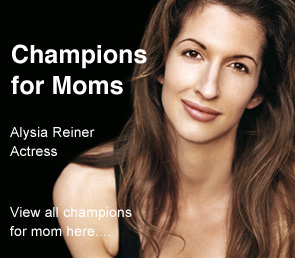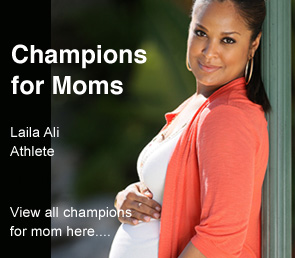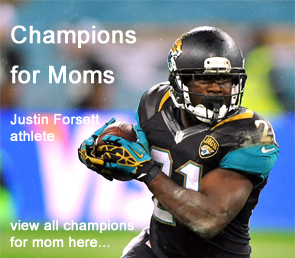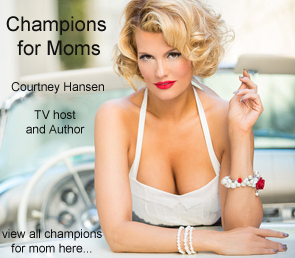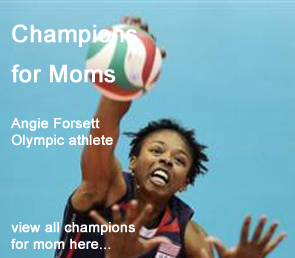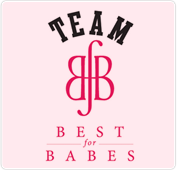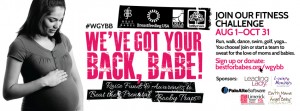 Expecting mothers face many barriers to breastfeeding long before they give birth and even try to nurse! A pregnant woman:
Expecting mothers face many barriers to breastfeeding long before they give birth and even try to nurse! A pregnant woman:
1) May have never seen breastfeeding in person so it is completely foreign. Breastfeeding is like riding a bike, it is hard to imagine doing it unless one has seen someone overcoming the learning curve and enjoying the ride.
2) May have a mother, sister, aunt and/or grandmother who didn’t breastfeed so can’t talk to her about what to expect or show her how . . . unlike diapers, baths, or many other aspects of newborn care. Even worse, these family members may actively discourage breastfeeding because of their own unresolved feelings and misinformation, and may perpetuate misinformation (e.g. “you won’t be able to breastfeed because I wasn’t able to breastfeed”).
3) May have heard or read lots of myths and misinformation, and:
- Mistakenly assume breastfeeding is too hard because she is surrounded by myths and misinformation leading to a profound cultural fear of breastfeeding and a distrust of a woman’s body’s basic ability to feed and nurture her child, even though women have successfully nursed for thousands of years.
- Mistakenly assume that breastfeeding is easy because women have successfully nursed for thousands of years, without appreciating that it is a learned art that women have helped each other master, and without appreciating that critical mother-to-mother support has been eroded by Booby Traps.
- Mistakenly assume that breastfeeding will cause her breasts to sag or shrink, even though studies show that the hormones of pregnancy cause breast tissue to sag, not breastfeeding.
- Mistakenly assume that breastfeeding is always painful, when in fact actual pain (not temporary discomfort or a little soreness) is an indication that a woman needs to be seen by a lactation expert. Breastfeeding is a new sensation, and usually discomfort subsides and breastfeeding can actually feel comfortable and even pleasant!
- Mistakenly assume that she can not make enough milk, when in fact most women are capable of making enough milk for one, two or more babies.
- Mistakenly assume lots of things . . . too many to list here!
4) May have friends who didn’t breastfed, or only have horror stories because they were Booby-Trapped and didn’t know it. She may have no peer support group, or worse, friends that actively discourage breastfeeding it.
5) May be freaked out by the prospect of nursing out of the house because the media sensationalizes cases of nursing in public harassment or employment discrimination, so is unaware that most women have no problem nursing in public. She may decide breastfeeding is not worth the risk of being humiliated, especially if she is shy, suffers from PTSD, or depression.
6) May have a prenatal care provider that is a major Booby Trap! She/He often:
- Does not have the time to talk about breastfeeding or answer breastfeeding questions, and doesn’t know where to refer expecting mothers (or there aren’t enough resources in your area).
- Thinks breastfeeding support is the pediatrician’s responsibility, even though first-time mothers often have a long-term relationship with their prenatal care provider and are more comfortable turning to him/her for advice.
- Is not required to learn basic breastfeeding management by their professional association (e.g. ACOG), even though they are constantly required to take CEUs on a variety of other subjects. As a result, they can not identify risk factors for breastfeeding, diagnose inverted nipples or possible IGT, talk to patients about donor milk, and can not help patients figure out a plan of action, how to get support, or figure out an infant feeding plan that works for you.
- Is being aggressively targeted by formula companies. Thanks to free breakfasts, lunches, gifts and other perks, office staff and health care personnel are being coached on how to systematically undermine breastfeeding at the same time as they are given “breast is best” lip service. The office may be filled with formula company literature, branded patient charts and records forms (these cost money and prenatal care providers have shrinking budgets), and formula gift bags are handed out to mothers when they achieve breastfeeding milestones.
7) May not be able to find a good breastfeeding support group in her community. There are still far too few IBCLCs, CLCs, and lactation educators for the number of births in the U.S.
8) May be turned off by a minority of people involved in breastfeeding advocacy who are overly-zealous or aggressive and makes her feel pressured and like a failure before she even starts. Even though most advocates are non-judgmental and extremely supportive, one bad experience with the exception to the rule can have a lasting negative impact.
9) May shop for nursing bras and gear at stores that sell customer information to formula companies, which turn around and mail you misinformation and samples. Studies show that these samples and mailings are highly effective in persuading moms to stop breastfeeding earlier than they intended. Walmart, Target and Motherhood Maternity are some of the worst offenders because formula is still a bigger business to them than the companies that sell breastfeeding equipment or supplies.
10) May take a childbirth delivery class that doesn’t include breastfeeding, or is just tacked on at the end, and who knows how good that part of the class is? The teacher may be qualified in childbirth delivery but not be a certified lactation educator, counselor, IBCLC, LLLL, WIC Peer Counselor, or Breastfeeding USA counselor. May not learn that what happens during childbirth, can make breastfeeding easier or harder at first, e.g., early inductions, or that she will have better success with breastfeeding if her midwife follows the Midwives Model of Care or if she hires a labor doula.
11) May be concerned about returning to work and not know how to talk to her employer about her plans to breastfeed, about how to navigate the laws regarding her rights to pump or nurse at her workplace — or how to make it work while traveling, how to navigate her insurance company so she can see an IBCLC if necessary, or get a pump or any supplies she needs. Read more about Airport Booby Traps and Accommodations here.
12) Lives near a hospital that doesn’t offer a breastfeeding class, or it’s not a good class, because her hospital is one of the 92% that have not achieved the Baby-Friendly designation. Her hospital may brag about their state-of-the-art NICU but doesn’t let on that they have a high rate of unnecessary formula supplementation, have too few IBCLCs on staff and don’t implement a protocol proven to ensure breastfeeding success and customer satisfaction.
13) May not be able to tell an imposter “lactation specialist” who has received very little training from a good lactation expert, and the terms IBCLC, CLC, CLE, LLLL, Peer Counselor, and Breastfeeding Counselor leave her completely confused as to who does what and what kind of help you need.
14) May have a partner who is unsupportive, i.e. uneducated about the benefits of breastfeeding, not sure how to support her, doesn’t know that bathing, holding, soothing and skin-to-skin are great ways of bonding other than feeding, or sees breasts as sexual objects only and is uncomfortable with “sharing.”
15) May not know that many, many women overcome these barriers every day and go on to breastfeed successfully and happily!



